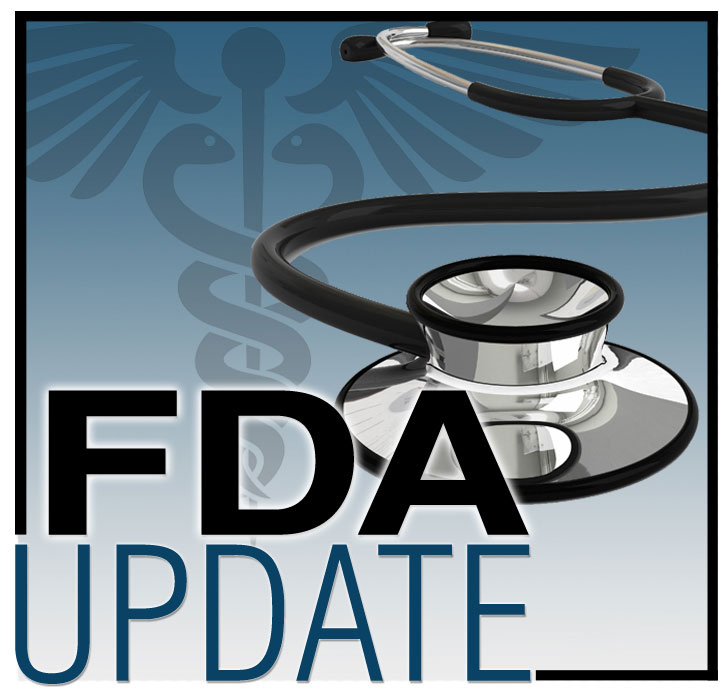FDA Approves Ruxolitinib for Acute Graft-Versus-Host Disease

On May 24, 2019, the U.S. Food and Drug Administration (FDA) approved ruxolitinib (Jakafi®) for steroid-refractory acute graft-versus-host disease (GVHD) in adult and pediatric patients 12 years and older.
Approval was based on Study INCB 18424-271 (NCT02953678), an open-label, single-arm, multicenter study of ruxolitinib that enrolled 49 patients with steroid-refractory acute GVHD Grades 2 to 4 (Mount Sinai Acute GVHD International Consortium criteria) occurring after allogeneic hematopoietic stem cell transplantation. Ruxolitinib was administered at 5 mg twice daily, and the dose could be increased to 10 mg twice daily after three days in the absence of toxicity.
The trial’s primary endpoints were day-28 overall response rate (ORR) defined as complete response, very good partial response, or partial response by Center for International Blood and Marrow Transplant Research criteria, and the response duration. Day-28 ORR was 100% for Grade 2 GVHD, 40.7% for Grade 3 GVHD, and 44.4% for Grade 4 GVHD. The median response duration, calculated from day-28 response to progression, new salvage therapy for acute GVHD, or death from any cause (with progression being defined as worsening by one stage in any organ without improvement in other organs in comparison to prior response assessment) was 16 days (95% CI: 9, 83), and the median time from day-28 response to either death or need for new therapy for acute GVHD (additional salvage therapy or increase in steroids) was 173 days (95% CI 66, NE).
In acute GVHD, the most common hematologic adverse reactions (incidence > 50%) are anemia, thrombocytopenia, and neutropenia. The most common nonhematologic adverse reactions (incidence > 50%) are infections and edema.
The recommended starting dose of ruxolitinib for GVHD is 5 mg given orally twice daily.
FDA granted this application priority review. A description of FDA expedited programs is in the Guidance for Industry: Expedited Programs for Serious Conditions-Drugs and Biologics (https://www.fda.gov/regulatory-information/search-fda-guidance-documents/expedited-programs-serious-conditions-drugs-and-biologics).
Healthcare professionals should report all serious adverse events suspected to be associated with the use of any medicine and device to FDA’s MedWatch Reporting System (https://www.accessdata.fda.gov/scripts/medwatch/index.cfm)or by calling 1-800-FDA-1088.
In collaboration with the FDA and as a service to our members, ONS provides updates on recent FDA approvals and other important FDA actions (e.g., updated safety information, new prescribing information) pertaining to therapies for patients with cancer. This allows the agency to inform oncologists and professionals in oncology-related fields in a timely manner. Included in the FDA updates is a link to the product label or to other sites for additional relevant clinical information. In supplying this information, ONS does not endorse any product or therapy and does not take any position on the safety or efficacy of the product or therapy described.
